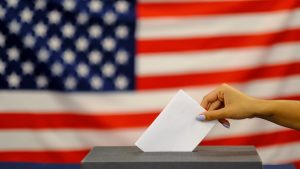 IT’S OKAY, I’LL BE THE ONE TO SAY IT.
IT’S OKAY, I’LL BE THE ONE TO SAY IT.
Dating is hard. It’s even worse if you’re a college graduate, because the gender divide makes much of the U.S. a man-famine zone. And if you want to find a feminist partner on top of all that? Well, good luck.
Nowadays, it’s pretty common — not to mention gratifying — to see screencaps of men’s inappropriate advances posted online: from frat boys on Facebook and Twitter, to men who have decided that business networking platform LinkedIn, of all places, is a good place to practice their new catcalls. Disrespect for women is rampant, and tone-deaf sexist apologists run amok, so it’s nice to see a backlash that calls out sexism and objectification.
Given its prevalence and nature, it comes as no surprise that Tinder is the platform where many of the most cringe-worthy conversations we read online originate. It is the dating app of choice for 1.6 BILLION people. Because every social network and app can be seen as a condensed version of the real world, you can certainly expect to find creeps and assholes on any platform. Tinder, however, seems to have more than its fair share.
If you aren’t familiar with it, you only need to look at @feminist_tinder — the Instagram account Laura Nowak started in order to catalog the heinous and not-so-heinous responses she received from men after putting “feminist” in her Tinder bio — to see what I mean:
But now there’s an anti-Tinder on the market, and it’s picking up steam.
Meet Bumble: the dating app that puts women in charge of matches and meet-ups. The premise is simple. Men interested in women must wait for their potential partners to initiate conversation, limiting the number of “shawty wanna fukk?” and “yo baby” comments straight women receive. Either member of a potential gay or lesbian couple may make the first move, and, as with straight users, there is a 24-hour window in which a conversation must be started to avoid having the match tossed out forever.
Bumble is a startup launched in December 2015 by Whitney Wolfe. One of Tinder’s co-founders, Wolfe left Tinder in April 2014 and filed a detailed sexual harassment lawsuit against the company. Her new company is being hailed as the feminist Tinder, and these claims aren’t far off. The app works actively against the sexist stereotypes that attempt to define “masculinity” and “femininity” for the masses.
Let me explain. One of the ways patriarchy hurts men is through the perpetuation of toxic, stereotypical masculinity. The story goes something like this: “Real Men” are always in power. They don’t get turned down or laughed at. When something challenges his masculinity, a Real Man asserts himself using his fists or his weapons. If he chooses to use his words, they must be obscene, relying on centuries of oppression and degrading others at their basest level: sexuality. The Real Man whose masculinity is challenged must use slurs related to gay men and sex workers in order to reassert his power and dominance.
This narrative is, of course, ridiculous, and men who don’t necessarily see themselves as an “alpha-male” type are confused and troubled by the stereotype. I’ve been asked by many male friends why men have to make the first move. It’s not fair, they protest, to demand that men put themselves out there for rejection. And I agree. I explain to them that women are told men will not respect them if they make the first move, that a man’s desire for a woman will be sapped by her straightforwardness. They always look shocked, because, by-and-large, they have no idea this kind of thing goes on.
For shy men, and those tired of these societal demands, Bumble may be a godsend. Here is a dating app that takes the pressure of first contact off their shoulders. Because the app rewards good behavior by pre-vetting users based on their interactions with each other, the “nice guys finish last” stereotype does not apply here. Unlike other platforms, where crass comments, dick pics, and other forms of harassment go unpunished, Bumble wants users to put their best feet forward. So nice guys — by which I mean the ones who are truly good people, not the ones who think I’m a vending machine accepting kindness coins in exchange for sex — have the advantage here.
Really, if you can get past the nail-biting anxiety of having to initiate conversation, Bumble is a more laid-back environment for straight women, too. By putting them in charge of selecting which users they’ll interact with, Bumble prevents women from being inundated by harassment, making them more likely to pick up their phones and use the app. Comfort is key, and knowing you aren’t signing yourself up for a barrage of sexism and objectification every time you pick up the app makes it instantly more accommodating.
Bumble is available on iOS for download.







-300x169.jpg)


-300x221.jpg)






